IMAGINATIVE • CAPABLE • IMPACTFUL

Foodservice Concept Development
Phase One: Competitive Analysis
-
Identify direct and indirect competitors to visit
-
Analyze competitors' menus to determine what items match your concept
-
Perform competitive analysis on the strengths and weaknesses of nearby competitors
Deliverables
-
Spreadsheet list of direct and indirect competitors with checklist
-
On-site visits to local restaurants of direct and indirect competitors
-
List of competitors' menu items that match your concept
-
"Strength and weaknesses" document on each competitor
Phase Two: Defining Concepts
-
Identify types of operational concepts (i.e. breakfast restaurant, café market, upscale casual, steak house)
-
Develop a “vision strategy” for the concepts to include a narrative description of the concept
-
Develop concepts' “value proposition”
-
Develop “differentiation strategy”
Deliverables
-
“Narrative description” document for each concept
-
"Value proposition” document for each concept
-
“Differentiation strategy” document
Phase Three: New Menu Development
-
Identify and define menu items
-
Refine competitors' menu items to exceed what they offer
-
Identify pricing range (lowest to highest)
-
Create “signature” branded menu items
-
Write descriptions for each menu item
-
Ideal food cost percentage analysis on each menu item
Deliverables
-
List of proposed menu items for each category
-
List of price range within different categories
-
List of proposed signature items for each category
-
List of written descriptions on each menu item
-
List of menu items ideal for cost percentage
Phase Four: Foodservice Financial Projections
-
Create three to five-year performa for each concept (up to four concepts)
-
Establish cost of goods percentages for food and bar
-
Establish labor costs for each concept
-
Establish target prime costs for each concept
-
Determine seating capacity for each concept. Including Bars.
-
Determine hours and days of operation for each concept
-
Determine percentage of capacity for each concept based on seating count
Deliverables
-
Spreadsheet with performance data for each concept
-
Spreadsheet on “food cost” percentage data for each menu item by category
-
"Labor cost” percentage via mock labor schedule for each concept by day and week
-
"Prime cost” data in dollars and percentages with the sum of all foodservice categories
-
Seating capacity for each concept (to include turns)
-
Total sales for each concept based on the number of seats
-
Report on projected revenue generated per customer and the average cost per ticket to serve that customer